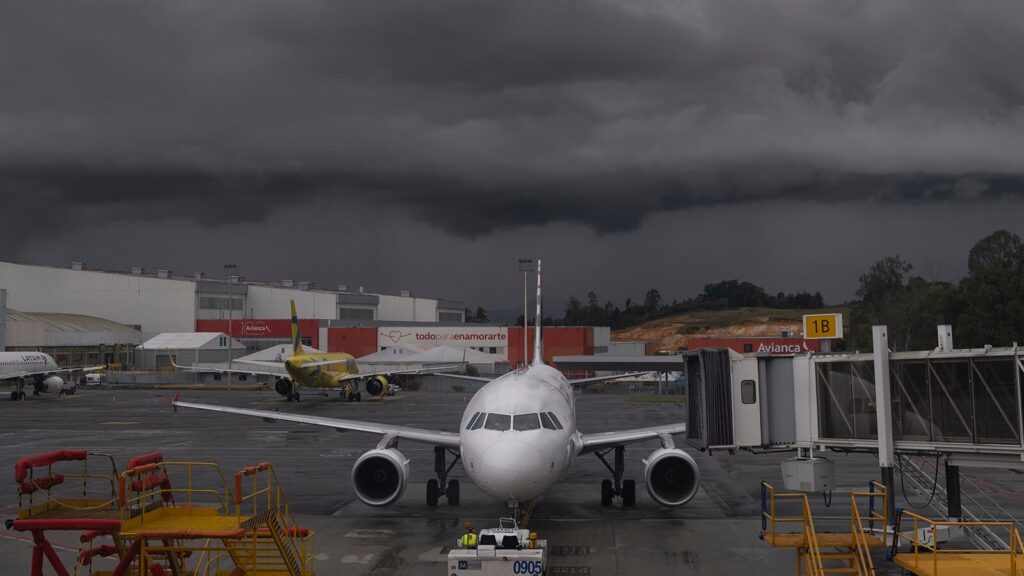
The Federal Aviation Administration (FAA) maintains a robust operations and performance dataset accessible through the Aviation System Performance Metrics (ASPM). Broadly speaking, flight delays are either categorized as Controllable Delays or Uncontrollable Delays.
Controllable Delay include maintenance issues, crew, and ground handling (e.g., baggage loading, cabin cleaning or fueling). As the name suggests, controllable delay implies that an airline has control and therefore responsible for the delay. Passengers may be entitled to compensations and the airline takes responsibility for any inconveniences such as overnight hotel accommodation for missed connections, or re-booking. On the other hand, uncontrollable delays include weather, air traffic control (ATC) traffic flow, equipment, or procedural delays (e.g., Expect Departure Clearance Time – EDCT). An airline operator is not responsible for an uncontrollable delays and passengers are typically not entitled to compensation and protections for inconveniences that ensue from the schedule disruptions.
In this article, I summarize key findings and insights from the research work that Kaitlyn Jesmonth and I carried out. The work titled “Weather Conditions Most Detrimental to Flight Operations along the East Coast of the United States” was presented at the 101st Annual Meeting of the American Meteorological Society as part of the 21st Conference on Aviation, Range, and Aerospace Meteorology (ARAM) session on the Advances in the use of artificial intelligence and probabilistic predictions in support of ARAM.
Statistically, weather is responsible for over 70% of flight delays in the National Airspace System (NAS). Weather delays may be at the departure and/or destination airport, or enroute. The direct financial impact of weather-related delays includes, among others, additional fuel consumed due to ground delays, increase in uplift fuel, holding patters, or diversions. To better understand weather related delays, flight cancellation data from 2015 to 2019 was acquired through U.S. D.O.T. Bureau of Transportation Statistics for JFK New York City, N.Y.) and MCO (Orlando, Fla.). The weather data was obtained from National Oceanic and Atmospheric Administration (NOAA)’s National Centers for Environmental Information (NCEI). JFK and MCO were chosen for this study to highlight the latitudinal variability in weather and seasons, and differences in the weather type and impact to flight cancellations.
Simple statistical analysis and a new machine-learning method was applied to the dataset and yielded the following results shown in the figures below.

Figure 1: Number of flight cancellations and the percentage breakdown for each month at JFK and MCO. September shows anomalously high flight cancellations at MCO, and we are still exploring this issue. Broadly speaking, flight cancellations spike during the winter and summer seasons.

Figure 2: Flight cancellations by weather type and the percentage breakdown for each month at JFK and MCO. Weather type associated with winter such as blowing (BL)-snow (SN) followed by summertime thunderstorms (TS) dominate JFK’s flight cancellations. Flight cancellations at MCO are typically associated with thunderstorms, rain and fog.
Legend: BL – Blowing, BR – Mist, DZ – Drizzle, FG – FOG, FZ – Freezing, HZ – Haze, RA – Rain, SN – Snow, and TS – Thunderstorm.

Figure 3: The importance of a weather type that causes a flight cancellation for December-February (DJF) and March-May (MAM) at JFK and MCO. Legend: BL – Blowing, BR – Mist, DZ – Drizzle, FG – FOG, FZ – Freezing, HZ – Haze, RA – Rain, SN – Snow, and TS – Thunderstorm.

Figure 4: The importance of a weather type that causes a flight cancellation for June-August (JJA) and September-November (SON) at JFK and MCO.
Legend: BL – Blowing, BR – Mist, DZ – Drizzle, FG – FOG, FZ – Freezing, HZ – Haze, RA – Rain, SN – Snow, and TS – Thunderstorm.
In conclusion, the most impactful weather is during the summer and winter months. Thunderstorms play an important role at JFK over summer months, whereas thunderstorms are impactful during most of the year at MCO. Not surprisingly, winter weather is strongly related to flight cancellations at JFK, but this is obviously not this case at MCO.
Reference: Jesmonth, K. R., and A. Raghavendra, 2021: Weather Conditions Most Detrimental to Flight Operations along the East Coast of the United States. 21st Aviation, Range, and Aerospace Meteorology, Amer. Meteor. Soc., 8.3 https://ams.confex.com/ams/101ANNUAL/meetingapp.cgi/Paper/379861



























































































































